






In this "meticulous" commentary, "brilliantly" translated by Linda M. Maloney (Review of Biblical Literature), Hossfeld and Zenger provide for each psalm a relevant bibliography of scholarship, a fresh translation, text-critical and philological details, and commentary on historical context, theological significance, literary structure, and reception (in Septuagint, Targums, and New Testament), engaging a wide range of scholarship as they proceed. Line drawings help to illustrate the Ancient Near Eastern context.
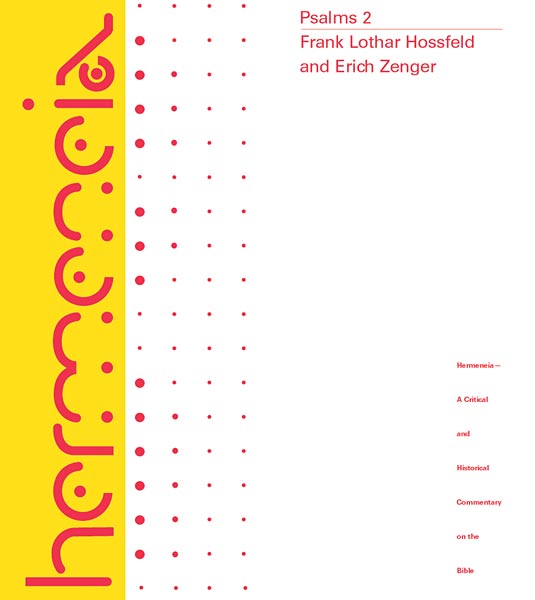
This newest contribution to the acclaimed Hermeneia series provides in-depth analysis of Psalms 51–100. It is volume 2 of a three-volume work; volume 3 (Psalms 101–150) will come next, followed by volume 1 (Psalms 1–50), which will include the comprehensive introduction.
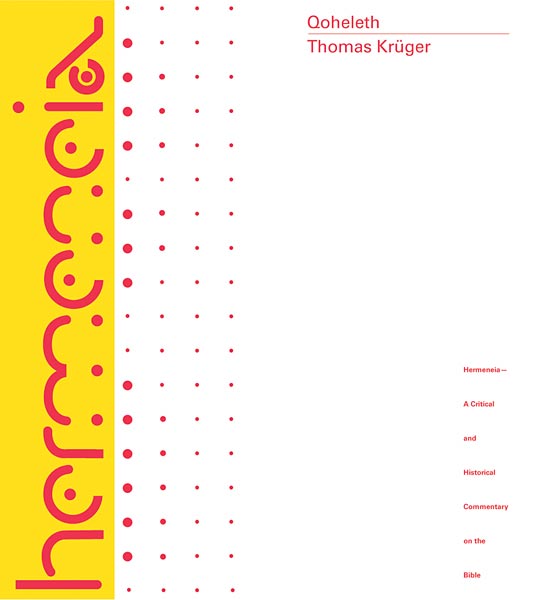
Qoheleth presents a special challenge not only for professional commentators but also for 'normal' readers of the Hebrew text (or a modern translation). . . . Most people in modern Western industrial societies . . . can relate without great difficulty to the reflections of the book of Qoheleth on work and rest or on behavior vis-á-vis those in power, and they can understand these reflections in terms of their own experiences. Nonetheless, the way in which these and other themes are handled in Qoheleth is a little puzzling. The fact that the book . . . reveals no clear organization and no overall progression of ideas may be accepted as a literary peculiarity and perhaps even strike one as interesting. Yet when one finds on various themes many statements that are highly contradictory in both the broad and the narrow context, one begins to ask what could be the point of this book and what is the purpose expressed in it. The present commentary seeks to help answer these questions.

Deeply conversant in the full range of questions and interpretations of the letter, Jewett's commentary explores the crucial and controverted passages that have always animated studies of Romans. Jewett also incorporates the exciting new insights from archaeology of the city of Rome, social history of early Christianity, social-scientific work on early Christianity, and the interpretation and reception of Paul's letter through the ages.
Breaking free from abstract approaches that defend traditional theologies, Jewett shows that the entire letter aims to elicit support for Paul's forthcoming mission to the "barbarians" in Spain. His work specifically focuses on Paul's missionary plans and how they figure in the letter, on Paul's critical and constructive tack with the Roman community, and finally and especially on how Paul's letter reframes the entire system of honor and shame as it informed life in the Roman Empire at the time. The latter remains a pertinent message today. The first commentary to interpret Romans within the imperial context as well as in the light of the situation in Spain, this landmark commentary, twenty-five years in the making, will set the standard for interpretation of Romans for the next generation.

To study these sermons with Betz is to be vastly informed about all forms of gospel criticism, and ultimately, about Jesus himself.

Murphy offers a representative sounding in the major periods of the Song's exegetical history. Attention is given to the hermeneutical principles operative in the development of Jewish and Christian exposition. Murphy examines the literary character and structure of the Song, aspects of its composition and style, and its meaning and theological significance.
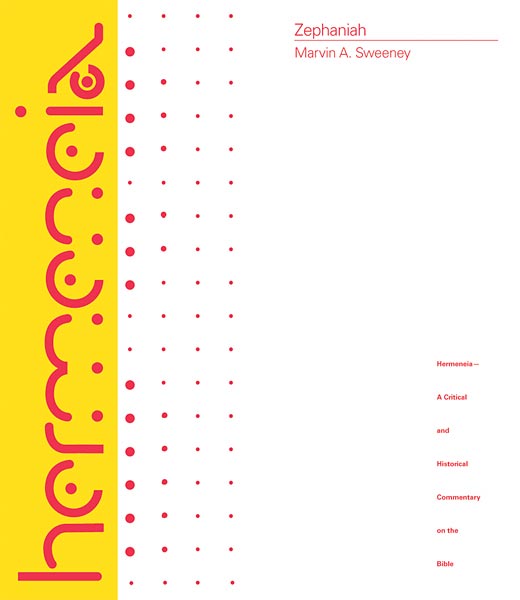
The Book of Zephaniah poses a full range of interpretive and hermenutical issues for the modern reader. Sweeney's keen reading of this small, prophetic book opens new doors for Hebrew Bible research. He situates the reading of Zephaniah in the early sixth century b.c.e. rather than the late seventh century b.c.e.
Sweeney's interpretation pays close attention to the often subtle differences between the Masoretic Text, Septuagint, Dead Sea Scrolls, Peshitta, and targums. His methodology includes form criticism, tradition history, and social history.
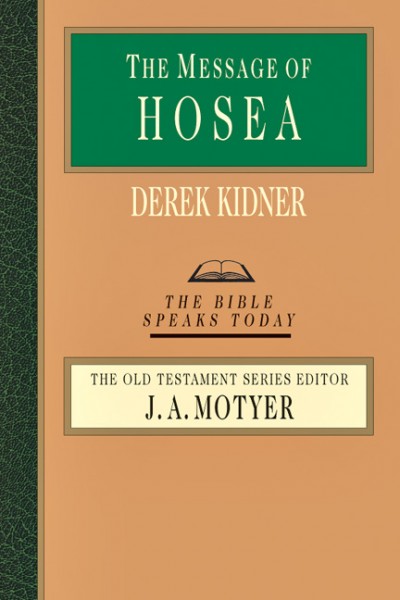
"Go and marry a prostitute." These are the first words God spoke to his prophet Hosea. Why would he ask this of one of his special spokesman? Because he wanted to teach Hosea, the nation of Israel and all of us today a lesson we will not forget, a lesson that is painful yet joyous.
Hosea's somber portrait of the human condition is our lesson in pain. All of us have played the harlot by forsaking God and his ways. The picture is not pretty but it's true. Yet Hosea clear illustration of God's love for us brings joy. While we are yet sinners, God comes to us and loves us. Derek Kidner imaginatively takes us through the unfolding story of Hosea and his wife, Gomer explaining the basic message, pointing out the subtleties and encouraging readers to live lives worthy of the God who loves the loveless.
About the Bible Speaks Today (BST) Series:
Edited by J.A. Motyer and the late John R. W. Stott, the Bible Speaks Today commentaries are characterized by what Stott called a "threefold ideal . . . to expound the biblical text with accuracy, to relate it to contemporary life and to be readable." As such, each contributor in this series is both a noted scholar and a working pastor.
The BST series, now complete, covers all sixty-six books of the bible (Old and New Testaments) in fifty-five volumes. If you preach or teach from Scripture, the Bible Speaks Today series will help you apply the timeless biblical message to the everyday experiences of your listeners. And if you study the Bible on your own, these volumes will be a helpful resource focusing on the significance of God's Word for your own life and work.
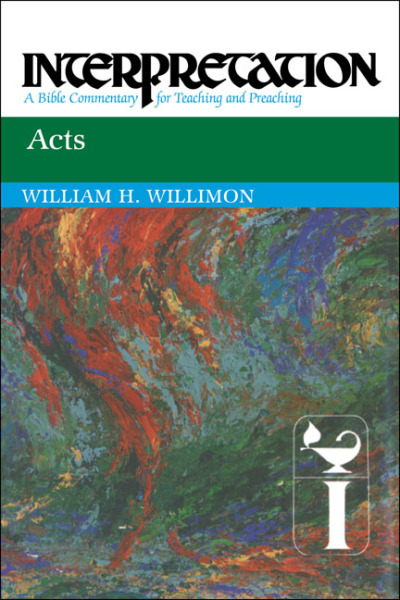
William Willimon combines the latest findings in Lukan scholarship with the pastoral, educational, and theological concerns of the local church to provide a new interpretation of Acts. He bases his commentary on the idea that the purpose of Acts was not to make Christianity acceptable to the Roman state but rather to preserve the integrity of the church against the onslaught of classical culture.
Interpretation: A Bible Commentary for Teaching and Preaching is a distinctive resource for those who interpret the Bible in the church. Planned and written specifically for teaching and preaching needs, this critically acclaimed biblical commentary is a major contribution to scholarship and ministry.
William H. Willimon is Professor of the Practice of Ministry at Duke University Divinity School. A retired bishop of The United Methodist Church, he served previously as Dean of Duke Chapel. Recognized as one of the most effective preachers in the English-speaking world, he is the author of several books, including A Guide to Preaching and Leading Worship and The Collected Sermons of William H. Willimon, published by Westminster John Knox Press.
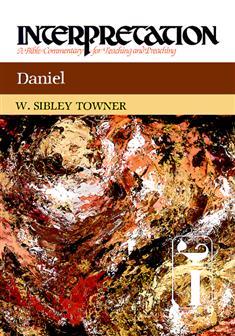
W. Sibley Towner contends in his Daniel volume that this book is of theological significance to all contemporary Jews and Christians, even if personal circumstances do not replicate the circumstances in which the book of Daniel was written. Not merely a tract for hard times, it is for good times as well even though the risk in reading from our affluent perspective is that the message may be an indictment. This volume glows with a deep conviction that God will not fail to achieve his redemptive purpose in the world, a faith that can energize us for the task of working for the good and safety of the creatures of the earth.
Interpretation: A Bible Commentary for Teaching and Preaching is a distinctive resource for those who interpret the Bible in the church. Planned and written specifically for teaching and preaching needs, this critically acclaimed biblical commentary is a major contribution to scholarship and ministry.
W. Sibley Towner is Professor Emeritus of Biblical Interpretation at Union Presbyterian Seminary in Richmond, Virginia.
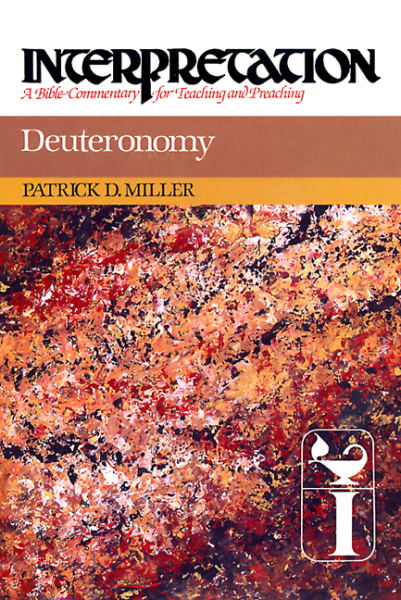

Ecclesiastes is a collection of sayings traditionally attributed to Solomon and deemed by some the strangest book in the canon. It comprises an unusual blend of autobiographical references, theological reflections, philosophical musings, and proverbial instructions, all probing the seeming pointlessness of human striving. Brown explores the text as it engages our own culture's era of questioning and search for self-fulfillment.
Interpretation: A Bible Commentary for Teaching and Preaching is a distinctive resource for those who interpret the Bible in the church. Planned and written specifically for teaching and preaching needs, this critically acclaimed biblical commentary is a major contribution to scholarship and ministry.
William P. Brown is William Marcellus McPheeters Professor of Old Testament at Columbia Theological Seminary. He has published numerous works, including Seeing the Psalms: A Theology of Metaphor and Ecclesiastes in the Interpretation series. He also serves on the editorial board for the esteemed Old Testament Library series, published by Westminster John Knox Press.
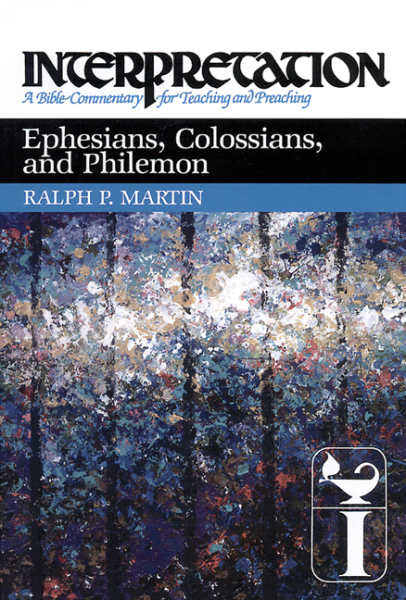
In his commentary, Ralph Martin singles out two themes that are high on today's agenda of theological and practical inquiry and planning. These themes are the cosmic dimensions of Christological teaching and the role of the church as God's locus and agent of reconciliation. In this examination, the author allows Paul's voice to be heard again on these important themes.
Interpretation: A Bible Commentary for Teaching and Preaching is a distinctive resource for those who interpret the Bible in the church. Planned and written specifically for teaching and preaching needs, this critically acclaimed biblical commentary is a major contribution to scholarship and ministry.
Ralph P. Martin is Professor Emeritus of New Testament at Fuller Theological Seminary in Pasadena, California, and Associate Professor Emeritus in biblical studies at the University of Sheffield in England. He is the author of numerous studies and commentaries on the New Testament, including Philippians in the Tyndale New Testament Commentary series and James in the Word Biblical Commentary series, for which he also serves as New Testament editor.

The biblical queen Esther is one of Scripture's most fascinating persons, and the drama of the book bearing her name is clearly captured in this superb commentary. Carol Bechtel expertly explores the historical settings, literary structures, and theological themes that emerge in the book of Esther.
Interpretation: A Bible Commentary for Teaching and Preaching is a distinctive resource for those who interpret the Bible in the church. Planned and written specifically for teaching and preaching needs, this critically acclaimed biblical commentary is a major contribution to scholarship and ministry.
Carol M. Bechtel is Professor of Old Testament at Western Theological Seminary in Holland, Michigan. She is the author of Life After Grace, Glimpses of Glory, and Esther in the Interpretation commentary series, all published by WJK.
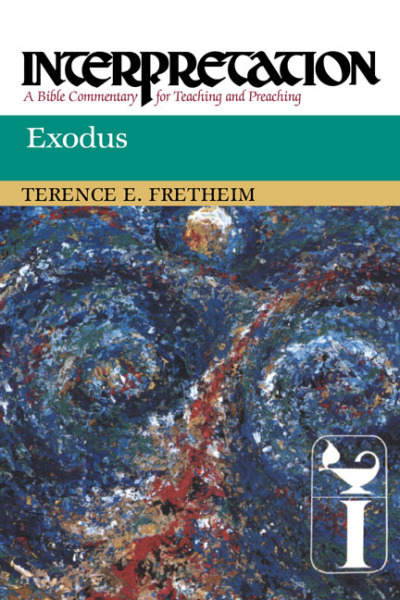
The introduction to this book recognizes Exodus as a Christian book, although it respects its pre-Christian roots in the Hebrew Bible. The commentary then moves in a straightforward manner to review issues of faith and history, the critical and theological tasks of a commentary, and other leading theological concerns. Terence Fretheim gives special treatment to the significance of the hardening of Pharaoh's heart, the relationship between law and narrative, and the shaping of literature by liturgy.
Interpretation: A Bible Commentary for Teaching and Preaching is a distinctive resource for those who interpret the Bible in the church. Planned and written specifically for teaching and preaching needs, this critically acclaimed biblical commentary is a major contribution to scholarship and ministry.
Terence E. Fretheim is Elva B. Lovell Professor Emeritus of Old Testament, Luther Seminary. A graduate of Luther College, Decorah, Iowa (B.A., 1956), Fretheim earned the M.Div. degree from Luther Seminary in 1960 and the Th.D. degree from Princeton Seminary in 1967. He has also studied at the University of Durham, England, the University of Minnesota, the University of Heidelberg in Germany, Oxford University in England, and the University of Chicago. Fretheim has published numerous books, including Jeremiah: A Commentary (Smyth & Helwys, 2002), God and World in the Old Testament: A Relational Theology of Creation (Abingdon, 2005); Hope in God in Times of Suffering (with Faith Fretheim) (Augsburg/Fortress, 2006); and Abraham: Journeys of Family and Faith (University of South Carolina Press, 2007).
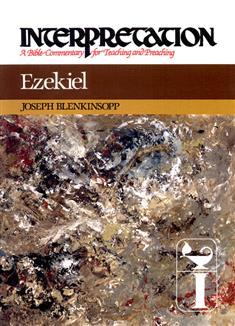
This major work explores the message and meaning of Ezekiel, one of the longest and most difficult of the prophetic books. An introduction explains what is involved in reading a prophetic book, and how the book of Ezekiel was put together and structured. It looks at the form of speech used and discusses Ezekiel's author and those who transmitted, edited, and enlarged upon what he had to say. The destruction of Jerusalem is a primary concern, and attention is focused on the political and social situation of the time in order to provide a clear understanding of the political and religious crisis facing the prophet's contemporaries.
Interpretation: A Bible Commentary for Teaching and Preaching is a distinctive resource for those who interpret the Bible in the church. Planned and written specifically for teaching and preaching needs, this critically acclaimed biblical commentary is a major contribution to scholarship and ministry.
Joseph Blenkinsopp is John A. O'Brien Professor Emeritus of Biblical Studies at the University of Notre Dame in Notre Dame, Indiana. He is the author of Sage, Priest, Prophet: Religious and Intellectual Leadership in Ancient Israel.
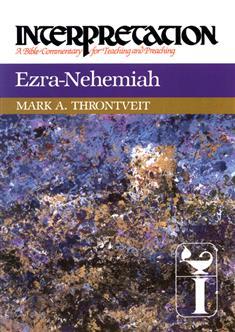
Studies in the books of Ezra-Nehemiah have tended to become bogged down with such questions as, "Who came first, Ezra or Nehemiah, and were they contemporaries?" "When did Ezra make his journey to Jerusalem, how many trips did he make, and which route did he take?" In this commentary, the author undertakes a theological reading which emphasizes its character as narrative and story. He avoids rearranging the text and, with the exception of chapter five of Nehemiah, he seeks to understand the narrative as it was received. In general, Mark Throntveit avoids an overly historical approach to the text and presents a clear picture of Ezra and Nehemiah.
Interpretation: A Bible Commentary for Teaching and Preaching is a distinctive resource for those who interpret the Bible in the church. Planned and written specifically for teaching and preaching needs, this critically acclaimed biblical commentary is a major contribution to scholarship and ministry.
Mark A. Throntveit is Professor of Old Testament at Luther Seminary in St. Paul, Minnesota. He also serves as Book Review Editor for Word and World.

Steven Tuell shows how the books of Chronicles present the revelation of God's plan and purposes through the history of Israel, emphasizing the important role that King David plays within that story. Using up-to-date scholarship, Tuell focuses on the theological message of these books-- that the purpose of life is to seek God, that those who find God's will and live accordingly will experience blessing, and that God's presence is found in the events of ordinary life.
Interpretation: A Bible Commentary for Teaching and Preaching is a distinctive resource for those who interpret the Bible in the church. Planned and written specifically for teaching and preaching needs, this critically acclaimed biblical commentary is a major contribution to scholarship and ministry.
Steven S. Tuell is Associate Professor of Old Testament at Pittsburgh Theological Seminary in Pittsburgh, Pennsylvania. He is an ordained elder in the United Methodist Church.
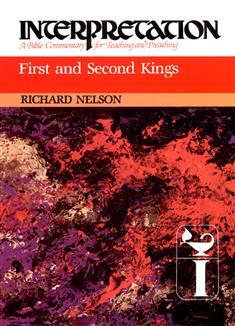
Richard Nelson examines the books of Kings and treats the text as theological literature, emphasizing the literary impact of this important part of the Old Testament canon. Nelson recognizes King's as a useful though uncritical source of historical information, its purpose to transform the beliefs of its first readers, to get them to re-evaluate their identity before God.
Interpretation: A Bible Commentary for Teaching and Preaching is a distinctive resource for those who interpret the Bible in the church. Planned and written specifically for teaching and preaching needs, this critically acclaimed biblical commentary is a major contribution to scholarship and ministry.
Richard D. Nelson is Professor Emeritus of Biblical Hebrew and Old Testament Interpretation at Perkins School of Theology, Southern Methodist University. He is a pastor with the Evangelical Lutheran Church in America and the author of several books, including Joshua: A Commentary in the Old Testament Library series and First and Second Kings in the Interpretation series.
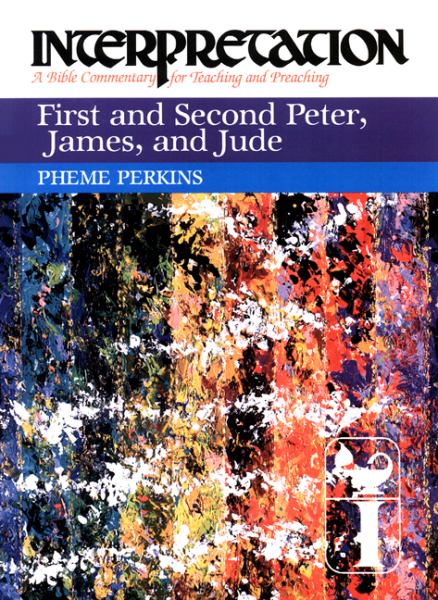
First and Second Peter, James, and Jude have existed on the edges of the canon throughout the centuries. In this much-anticipated volume in the Interpretation series, Pheme Perkins casts light on these often neglected writings. She ably demonstrates that these "catholic epistles" have, in fact, much to offer to today's readers.
Interpretation: A Bible Commentary for Teaching and Preaching is a distinctive resource for those who interpret the Bible in the church. Planned and written specifically for teaching and preaching needs, this critically acclaimed biblical commentary is a major contribution to scholarship and ministry.
Pheme Perkins is Professor of New Testament at Boston College in Chestnut Hill, Massachusetts, and the author of several books.

With critical scholarship and theological sensitivity, Walter Brueggemann traces the people of God through the books of Samuel as they shift from marginalized tribalism to oppressive monarchy. He carefully opens the literature of the books, sketching a narrative filled with historical realism but also bursting with an awareness that more than human action is being presented.
Interpretation: A Bible Commentary for Teaching and Preaching is a distinctive resource for those who interpret the Bible in the church. Planned and written specifically for teaching and preaching needs, this critically acclaimed biblical commentary is a major contribution to scholarship and ministry.
Walter Brueggemann is William Marcellus McPheeters Professor Emeritus of Old Testament at Columbia Theological Seminary. An ordained minister in the United Church of Christ, he is the author of dozens of books, including Sabbath as Resistance: Saying No to the Culture of Now, A Gospel of Hope, and Interrupting Silence: God’s Command to Speak Out.
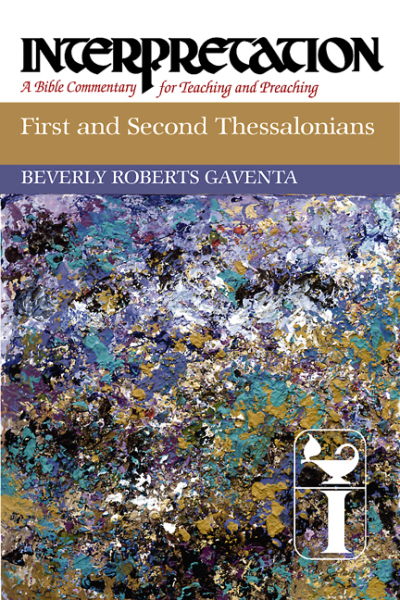
In this brilliant commentary, Beverly Roberts Gaventa discusses the issues central to the books of Thessalonians, identifying what makes each book important for the life of the church today, as well as for preachers and teachers.
Interpretation: A Bible Commentary for Teaching and Preaching is a distinctive resource for those who interpret the Bible in the church. Planned and written specifically for teaching and preaching needs, this critically acclaimed biblical commentary is a major contribution to scholarship and ministry.
Beverly Roberts Gaventa is Helen H. P. Manson Professor of New Testament Literature and Exegesis at Princeton Theological Seminary in Princeton, New Jersey. She has published a number of books including Mary: Glimpses of the Mother of Jesus, one of the few books written about Mary by a Protestant woman.
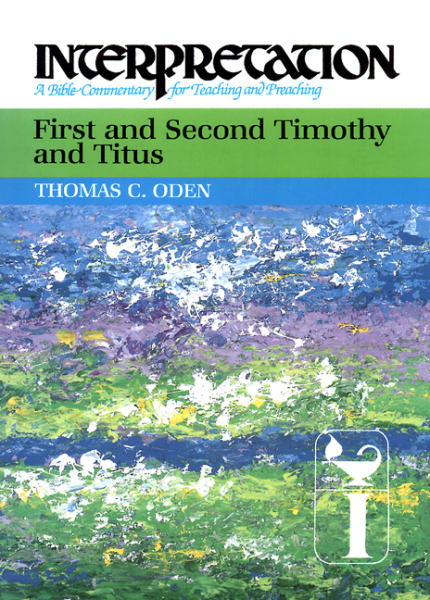
Thomas Oden provides a modern commentary on the pastoral letters grounded in the classical, consensual tradition of interpretation. Oden uses the best and most accurate research concerning the historical, literary, and philological aspects of the pastoral letters. He addresses tough issues: the role of women in worship, problems of the rich and poor, the relation between servants and masters, policies concerning support of elderly widows, and how to handle church disruptions.
Interpretation: A Bible Commentary for Teaching and Preaching is a distinctive resource for those who interpret the Bible in the church. Planned and written specifically for teaching and preaching needs, this critically acclaimed biblical commentary is a major contribution to scholarship and ministry.
Thomas C. Oden is the Henry Anson Buttz Professor of Theology and Ethics at Drew University in Madison, New Jersey.
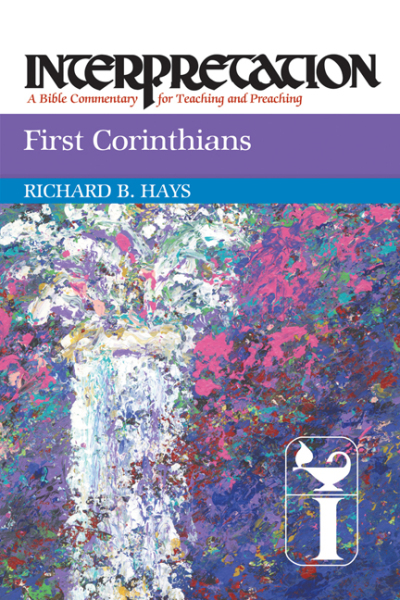
Paul's first letter to the Corinthians was addressed originally to a fledgling mission church in Corinth. Paul's absence from the church had allowed serious problems to arise within the Corinthian community, but the problems that he addresses in this letter do not always seem based on explicitly theological ideas. The brilliance of Paul, though, is that he frames the issues in theological terms and reflects on them in the light of the gospel.
Interpretation: A Bible Commentary for Teaching and Preaching is a distinctive resource for those who interpret the Bible in the church. Planned and written specifically for teaching and preaching needs, this critically acclaimed biblical commentary is a major contribution to scholarship and ministry.
Richard B. Hays is the George Washington Ivey Professor of New Testament at Duke Divinity School in Durham, North Carolina. He is an internationally recognized scholar for his work on the letters of Paul and on New Testament ethics.
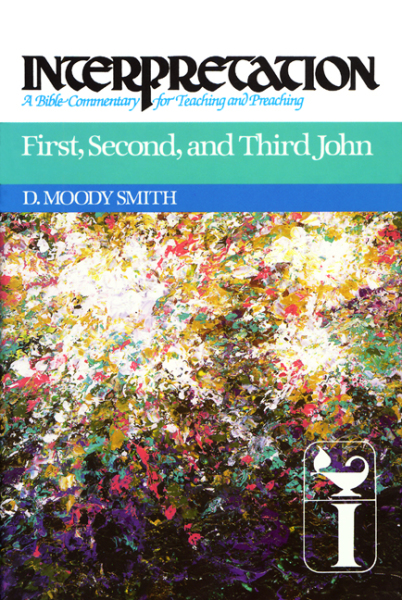
This careful and thoughtful book unlocks the door to the theological and ethical treasures contained in the Epistles of John. It is an invitation to a journey of discovery, from the well-known and familiar to the less familiar but rewarding.
Interpretation: A Bible Commentary for Teaching and Preaching is a distinctive resource for those who interpret the Bible in the church. Planned and written specifically for teaching and preaching needs, this critically acclaimed biblical commentary is a major contribution to scholarship and ministry.
D. Moody Smith is George Washington Ivey Professor Emeritus of New Testament at Duke Divinity School in Durham, North Carolina.
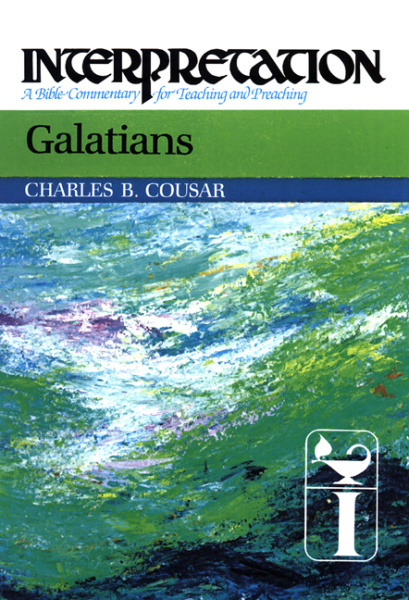
Charles Cousar, in his Galatians commentary from the Interpretation series, notes Paul perceives how completely the Galatians have misunderstood the heart of the Christian faith. They work from the wrong end of the relationship with God, all about what they can do to deal with the power of the flesh and fulfilling the law. The answer lies at the other end - what God has done in Christ, and how he has done it. The reality is that "God sent forth his Son, ...to redeem those who were under the law, so that we might receive adoption as sons" (Gal 4:4-5) and there can be no compromise with any other means of dealing with the law or gaining membership in God's family, no middle ground where God does his part and humans theirs.
Grasping this radical grace may be difficult in the current times, where handouts are either suspect or expected. Per Cousar, "Circumcision has its religious and secular counterparts in the various ways in which we 'supplement' God's free gift of himself and prescribe for ourselves (or others) a particular accomplishment which becomes a "must." A piety which turns into anxiety about our spritual health and searches for unforgiven sins has forgotten what God has done in Christ and how he has done it."
Interpretation: A Bible Commentary for Teaching and Preaching is a distinctive resource for those who interpret the Bible in the church. Planned and written specifically for teaching and preaching needs, this critically acclaimed biblical commentary is a major contribution to scholarship and ministry.
Charles B. Cousar is Professor Emeritus of New Testament at Columbia Theological Seminary in Decatur, Georgia. He is the author of numerous books, including Galatians in the Interpretation commentary series. He is also coauthor of the three volumes of Texts for Preaching.

In his clear and readable style, Walter Brueggemann presents Genesis as a single book set within the context of the whole of biblical revelation. He sees his task as bringing the text close to the faith and ministry of the church. He interprets Genesis as a proclamation of God's decisive dealing with creation rather than as history of myth. Brueggemann's impressive perspective illuminates the study of the first book of the Bible.
Interpretation: A Bible Commentary for Teaching and Preaching is a distinctive resource for those who interpret the Bible in the church. Planned and written specifically for teaching and preaching needs, this critically acclaimed biblical commentary is a major contribution to scholarship and ministry.
Walter Brueggemann is William Marcellus McPheeters Professor Emeritus of Old Testament at Columbia Theological Seminary. An ordained minister in the United Church of Christ, he is the author of dozens of books, including Sabbath as Resistance: Saying No to the Culture of Now, A Gospel of Hope, and Interrupting Silence: God’s Command to Speak Out.
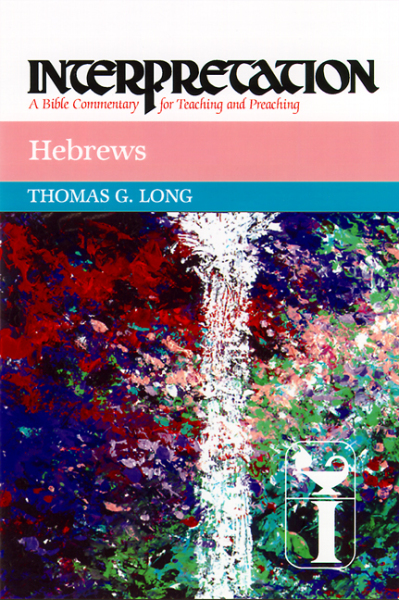
Hebrews is a sermon from the early Christian church that addresses a real, urgent, and still relevant pastoral problem: a struggling congregation that may not keep the faith. Thomas Long shows how Hebrews exhorts the church to face its challenges and hold true, even into the twenty-first century.
Interpretation: A Bible Commentary for Teaching and Preaching is a distinctive resource for those who interpret the Bible in the church. Planned and written specifically for teaching and preaching needs, this critically acclaimed biblical commentary is a major contribution to scholarship and ministry.
Rev. Dr. Thomas G. Long is the Bandy Professor of Preaching Emeritus at Candler Theological School, Emory University.
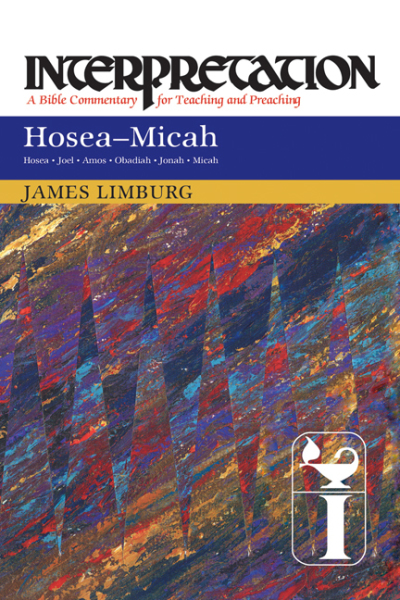
James Limburg introduces the first six of the minor prophets and provides a commentary that relates to today's world. He demonstrates why attention should be given to the words of these prophets as they communicate the word of God.
Interpretation: A Bible Commentary for Teaching and Preaching is a distinctive resource for those who interpret the Bible in the church. Planned and written specifically for teaching and preaching needs, this critically acclaimed biblical commentary is a major contribution to scholarship and ministry.
James Limburg is Professor Emeritus of Old Testament at Luther Seminary in St. Paul, Minnesota.
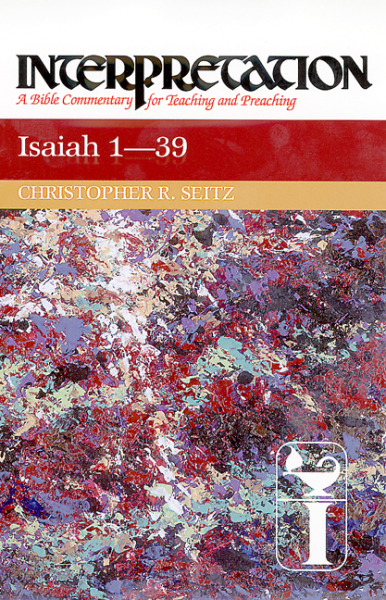
This unique commentary allows the interpretation of Isaiah 1-39 to be guided by the final form of the book. It focuses on the theological aspect of the book of Isaiah, giving special attention to the role of literary context. Christopher Seitz explores structural and organizational concerns as clues to the editorial intention of the final form of the material, which he argues is both intelligible and an intended result of the efforts of those who gave shape to the present form of the book.
Interpretation: A Bible Commentary for Teaching and Preaching is a distinctive resource for those who interpret the Bible in the church. Planned and written specifically for teaching and preaching needs, this critically acclaimed biblical commentary is a major contribution to scholarship and ministry.
Christopher R. Seitz is Professor of Old Testament and Theological Studies at the University of Saint Andrews in Scotland. He is the author or editor of eight books including Figured Out: Typology, Providence and Christian Scripture and Nicene Christianity: The Future for a New Ecumenism.






- Adapt your commentary collection month-to-month based on the book or books you are studying.
- Build your commentary library strategically without hundreds of dollars of upfront investment.
- Never get stuck with commentaries you rarely use - swap them out each month as your needs change.



